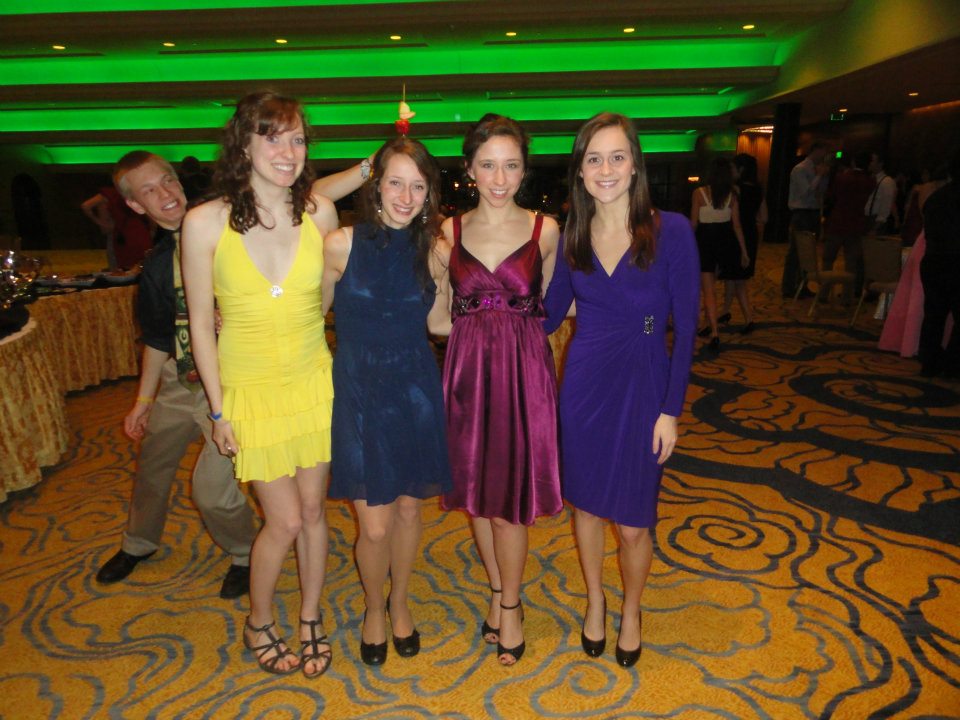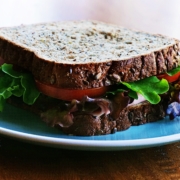My Eating Disorder Dietitian Saved My Life
Anyone who has read Running in Silence knows that I was convinced to take on “macronutrient” or “lifestyle” diets. I wasn’t sure how to decipher correct nutrition information when there were published books about the wonders of these diets, and when the leaders of such diets were boasting about the benefits. And if a certain diet wasn’t working for me, I believed it was because I wasn’t doing it right, or going through “detox.”
As someone who was in a vulnerable spot with my body image, running, and eating disorder, these diets felt like a way out. Each one felt like freedom and a fix for my “broken” appetite. Only, embarking on these diets actually made everything even more confusing. It made it difficult to go out to eat, to have enough “good” food, and the cravings I had were the most intense cravings I had ever experienced in my life.
I thought I was in control, but the food was in control of me and everything else I did.
Does Food Dominate Your Life?
If you are enticed by a new way of eating or only eating certain foods or macronutrients, I encourage you to reflect on how much food or eating takes up your life. I believe it shouldn’t be on your mind much more than looking forward to meals or enjoying the meal with family and friends. To me, that is recovery.
In recovery, I see how flexible my life is. I see how easy it is to go about my day not worried about how I can have the “right” food. I allow myself to eat whenever it sounds good rather than avoiding a certain craving or avoid eating “too much.”
It’s easy to say all of this now that I’m out of the eating disorder. I do recognized how difficult (and seemingly unattainable) it feels when you are in the grips of an ED. It is my hope that if you are struggling, you can get to this place of balance and flexibility. For me, getting there required meeting with an eating disorder registered dietitian.
A Critical Part of My Recovery
Getting to my dietitian didn’t happen right away. In fact, I resisted my therapist’s recommendation to see a dietitian for months. I was worried that a dietitian would make me eat food I deemed “unacceptable.” I thought she would cause the bingeing to worsen, and not understand why I “couldn’t eat certain foods.”
And then, my therapist uttered the words that changed it all: “Why don’t you try seeing the dietitian, and then if you really don’t like what she has to offer, you could just stop seeing her?”
That permission to “get out” if needed was what sealed the deal.
I met with this dietitian that day. After my therapist scooted me over to the office next door, the RD began by creating a meal plan. She wrote down how much I was exercising for my sport each day, and gently recommended a few foods I hadn’t eaten in years. With what felt was like a “map” to follow, I hesitantly tried a few of the recommendations.
And what do you know? The intense cravings lessened. When this dawned on me, I wondered if my body wasn’t as “broken” as I had believed it to be. In fact, my body was speaking up for me. The rules and regulations I had placed upon myself about what and how to eat was what led to the intense, unbearable cravings and bingeing in the first place.
Demand for Dietitians
Through all the “lifestyle” diets I attempted and the eating disorder I recovered from, I’ve found the greatest benefit from meeting with a registered sports dietitian. I learned to eat plenty of nutrient-dense foods alongside other foods I enjoy that others may deem “unhealthy.” I would say these “unhealthy” foods maybe aren’t not as nutrient-dense, but they are healthy in terms of feeding my soul and bringing me a great social life and balanced mindset.
Eating with flexibility allowed my body to find the weight it felt best at. It took years to get to that point, and therapy helped me to feel more comfortable and happy with my body. Having the combination of working with an eating disorder therapist and a dietitian helped me find peace. I feel fortunate now whenever I meet many more registered dietitians because of what this one RD did for me.
Registered dietitians are probably some of the most under-utilized part of sports and relationships with food. If we talked about seeing a dietitian for food as often as we talked about seeing a doctor for a physical ailment, maybe there would be fewer “lifestyle” diets and enjoyment around food and sports.










